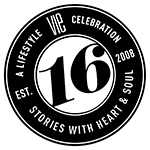
vie-magazine-suzanne-pollak-column-november-2019-hero-min
Let’s Talk Turkey
Thanksgiving Dinner Gets a Do-Over
By Suzanne Pollak
In November, the big white elephant—oops, I mean turkey—stands in the middle of the month representing feast and family with a meal often fraught with fissures, fatigue, and frustrations. And no wonder! We read advice everywhere about everything: four-weeks-ahead lists, “Thirty Ways to Cook a Turkey,” how to carve (well, at least that’s useful) . . .
Have you noticed how in all the blather, nothing is new, noteworthy, or life changing—it’s all copycat material? Enough with unreal expectations and instructions about one day and one big bird! Thanksgiving is just one meal in a thirty-day month! Let’s consider November from a different angle; instead of announcing trifle piffle (thanks) at the Thanksgiving table, let’s be thankful for what is happening every single day.
It’s time to elevate the ordinariness of the daily dinner. My experience from marriage and mothering, from listening to Charleston Academy students, and from accepting invitations to other people’s houses, is this: If you never use your dining room or you do so infrequently or only on big occasions, and if your family only grazes according to their individual schedules with eyes attached to a screen and not on each other, then you will be sorely disappointed. This goes not only for Thanksgiving but also for decades later. The nightly meal is a small but mighty vehicle of opportunity. Your table can be jam-packed with inspired learning—a classroom for watching and doing—and realizing what to be thankful for: manners, nutrition, and bonds, among other things. Eat enough dinners at the table, and you and yours will become aces at many social skills.
This type of expertise is open to anyone with a kitchen table and a stove. Knowledge and enjoyment come from the daily cooking, communicating, connecting, menu planning, table setting, handling of fork and knife, washing up, behaving, knowing what to talk about, knowing how to listen, and knowing when to be excused. The whole shebang of learning how to be a functioning human being takes place naturally around the table. You don’t need to overthink this; you need only to organize family dinner several times a week. If your existence does not include this ritual, then good luck at producing Thanksgiving. Holiday occasions need scaffolding, not just stuffing. Big events run smoothly and everyone has more fun when know-how is the foundation, and that comes from the experience and repetition of multiple little events.
Malcolm Gladwell’s book Outliers popularized the belief that ten thousand hours of practice makes you an expert at whatever you’re practicing. The Charleston Academy calls BS on this. Our “scientific study” proves that to become proficient in domestic pursuits, thousands of hours are not necessary. The goal of family dinners is not to produce a James Beard Award–winning chef or a chief protocol officer at a foreign embassy—although these are possibilities. The Academy’s equation is this: fifty-two weeks per year times four home-cooked dinners around a table per week times fifteen years equals 3,120 hours. That’s more than enough hours to award every family member a PhD in soft skills—useful, practical, and necessary for life.
Let’s consider November from a different angle; instead of announcing trifle piffle (thanks) at the Thanksgiving table, let’s be thankful for what is happening every single day.
There are two steps to making sure learning happens at an ordinary dinner. First, make the family want to sit down four times a week without devices. Next, make it a habit. Looking back years later, you will feel satisfied with a life well lived, knowing you provided yourself and your family with the nourishment of good food and one-on-one conversations—cornerstones of success in personal and professional relationships. Small daily habits add up to tremendous rewards.
My holidays were remarkable because I was an outsider who wanted to produce idyllic Thanksgivings (as someone who was not raised in this country does to fit in). It was what I learned from feeding my family every night that taught me how to manage the holiday cooking for a crowd. I did not enter marriage as an accomplished cook; birthing children ignited my cooking skills, and they improved because I had to feed the kids every night. I took that job seriously—not for a reward, because there is no daily reward for an everyday dinner, no matter how organized or delicious. We must develop thick skins and great belief in cooking for a family, because we will be barraged with a steady stream of complaints before, during, and after the meal. We need to brush off the whines, repeated in millions of households the world over: What, that again? I don’t want that! I am not hungry for that! So-and-so doesn’t have to eat that at her house. Can I be excused? You might even hear all of this within five minutes of sitting down! The two words “Thank you” are rarely uttered or even thought of, despite the thousands of trips you made to the store, the hours wondering how to feed the flock and what they might want to put into their mouths, the effort of preparing healthy meals, the mentoring in manners and the art of conversation, and so on.
The rewards and thanks come years later, not as a whisper from a loved one but as a realization deep inside your brain of your unique accomplishments when you watch your children teach these mighty lessons to their offspring. While waiting for that moment to arrive, be thankful for the goodness you spread four nights a week, fifty-two weeks a year. The Academy bestows upon you a PhD and an Academy Award for the most important job in the world.
— V —
Suzanne Pollak, a mentor and lecturer in the fields of home, hearth, and hospitality, is the founder and dean of the Charleston Academy of Domestic Pursuits. She is the coauthor of Entertaining for Dummies, The Pat Conroy Cookbook, and The Charleston Academy of Domestic Pursuits: A Handbook of Etiquette with Recipes. Born into a diplomatic family, Pollak was raised in Africa, where her parents hosted multiple parties every week. Her South Carolina homes have been featured in the Wall Street Journal “Mansion” section and Town & Country magazine.
Share This Story!
KEEP UP WITH THE LATEST STORIES FROM VIE








































































































































